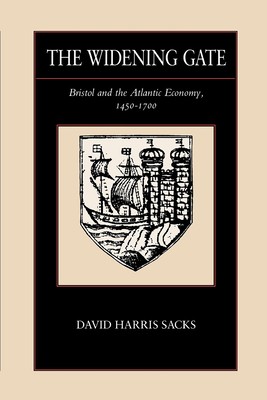
- We will send in 10–14 business days.
- Author: David Harris Sacks
- Publisher: University of California Press
- ISBN-10: 0520084497
- ISBN-13: 9780520084490
- Format: 15.5 x 22.9 x 3.2 cm, softcover
- Language: English
- SAVE -10% with code: EXTRA
Reviews
Description
The history of capitalism is not to be explained in mere economic terms. David Harris Sacks here demonstrates that the modern Western economy was ushered in by broad processes of social, political, and cultural change. His study of Bristol as it opened it gate to national politics and the Atlantic economy reveals capitalism to be not just a species of economic order but a distinct form of life, governed by its own ethical norms and cultural practices. Availing himself of the methods of "thick description," socio-economic analysis, and political theory, Sacks examines the dynamics by which early modern Bristol moved from a medieval commercial economy to an early capitalist one. Throughout the period, the life of the city depended heavily on the successes of its great overseas merchants. But their quest for a monopoly of trade with the outside world, from the Atlantic seaboard to the Levant, came into conflict with the concerns of Bristol's artisans and retail shopkeepers. The battles of the two factions conditioned social and cultural developments in Bristol for two centuries. Locally, the conflict set the terms for developing conceptions of justice and authority. On a larger scale, it drew the community firmly into the great affairs of the realm and the wider world of expanding markets beyond.
EXTRA 10 % discount with code: EXTRA
The promotion ends in 18d.04:40:25
The discount code is valid when purchasing from 10 €. Discounts do not stack.
- Author: David Harris Sacks
- Publisher: University of California Press
- ISBN-10: 0520084497
- ISBN-13: 9780520084490
- Format: 15.5 x 22.9 x 3.2 cm, softcover
- Language: English English
The history of capitalism is not to be explained in mere economic terms. David Harris Sacks here demonstrates that the modern Western economy was ushered in by broad processes of social, political, and cultural change. His study of Bristol as it opened it gate to national politics and the Atlantic economy reveals capitalism to be not just a species of economic order but a distinct form of life, governed by its own ethical norms and cultural practices. Availing himself of the methods of "thick description," socio-economic analysis, and political theory, Sacks examines the dynamics by which early modern Bristol moved from a medieval commercial economy to an early capitalist one. Throughout the period, the life of the city depended heavily on the successes of its great overseas merchants. But their quest for a monopoly of trade with the outside world, from the Atlantic seaboard to the Levant, came into conflict with the concerns of Bristol's artisans and retail shopkeepers. The battles of the two factions conditioned social and cultural developments in Bristol for two centuries. Locally, the conflict set the terms for developing conceptions of justice and authority. On a larger scale, it drew the community firmly into the great affairs of the realm and the wider world of expanding markets beyond.


Reviews